Home » Liver Cancer Specialist In Singapore
Liver Cancer Specialist in Singapore

Dr Thng Yongxian
Hepatopancreatobiliary & General Surgeon
MBBS • MMed • MRCS (IRE) • FRCSED • FAMS
What is Liver Cancer?
Liver cancer, also known as hepatic cancer, is a type of cancer that originates in the liver. This is referred to as primary liver cancer.
The most common form of primary liver cancer is hepatocellular carcinoma (HCC), which begins in the main type of liver cell, the hepatocyte. Other less common primary liver cancers include cholangiocarcinoma (bile duct cancer originating within the liver) and angiosarcoma.
Liver cancer can also occur when cancer from another part of the body spreads to the liver; this is known as secondary liver cancer or metastatic liver cancer. In such cases, the cancer found in the liver did not start there but travelled from another organ, such as the colon, lung, or breast.
Liver cancer is a serious condition that requires prompt diagnosis and appropriate treatment. Early detection through screening programs and awareness of risk factors can improve outcomes for individuals at risk of developing liver cancer.
Causes of Liver Cancer
Liver cancer can be caused by various factors, including chronic infections with hepatitis B virus (HBV) or hepatitis C virus (HCV), which significantly increase the risk of developing it. Other common causes and risk factors associated with liver cancer include the following:

Chronic Liver Diseases
Conditions like cirrhosis, which is scarring of the liver often caused by long-term alcohol abuse or chronic viral hepatitis infections.

Inherited Liver Diseases
Certain inherited liver diseases, such as hemochromatosis and Wilson’s disease, can predispose people.

Non-Alcoholic Fatty Liver Disease (NAFLD)
Excessive fat accumulation in the liver due to factors other than alcohol consumption, such as obesity and metabolic syndrome, can increase the risk of liver cancer.

Diabetes
Individuals with diabetes have an increased risk of developing liver cancer.
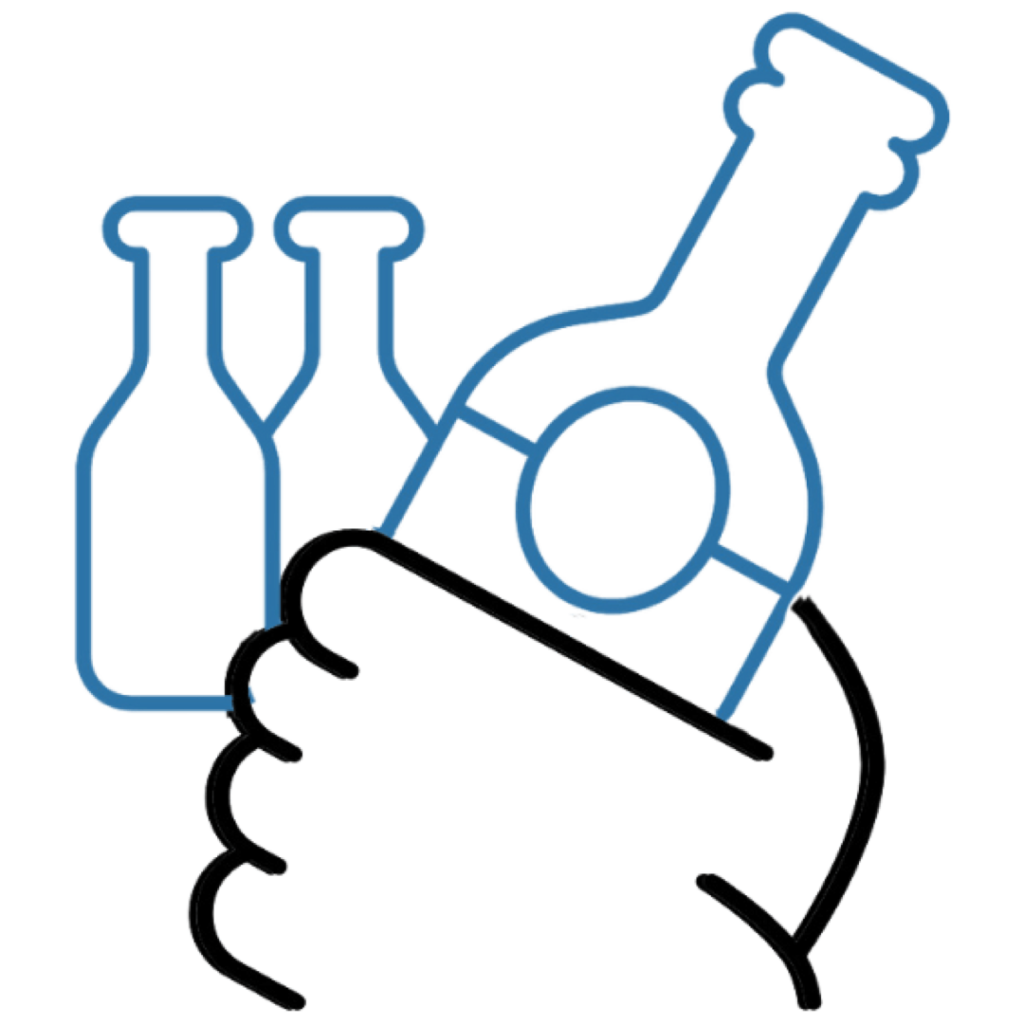
Excessive Alcohol Consumption
Chronic heavy alcohol consumption over many years can lead to irreversible liver damage, cirrhosis, and ultimately increase the risk of liver cancer.

Smoking
Smoking cigarettes is associated with an increased risk of various cancers, including liver cancer.

Chronic Hepatitis B and C Infections

Liver Cirrhosis

Alcohol Abuse

Exposure to Aflatoxins and Other Toxins

Other Factors
Factors like obesity, exposure to harmful chemicals, certain parasites in the liver (liver flukes), and HIV infection can also contribute to the development of liver cancer.
Liver Cancer Symptoms
You may experience the following if you have liver cancer. If your symptoms are persistent or worsen, consult a qualified specialist for an accurate diagnosis & prompt treatment.
- Unintended Weight Loss
- Loss of Appetite
- Feeling Very Full After a Small Meal
- Nausea or Vomiting
- Enlarged Liver
- Enlarged Spleen
- Abdominal Pain
- Swelling or Fluid Build-Up in the Abdomen
- Skin Itching
- Yellowing of the Skin and Eyes (Jaundice)
- Fever
- Enlarged Veins on the Abdomen
- Abnormal Bruising or Bleeding
Liver Cancer Diagnosis
To diagnose liver cancer, various tests and procedures are used to assess the condition.
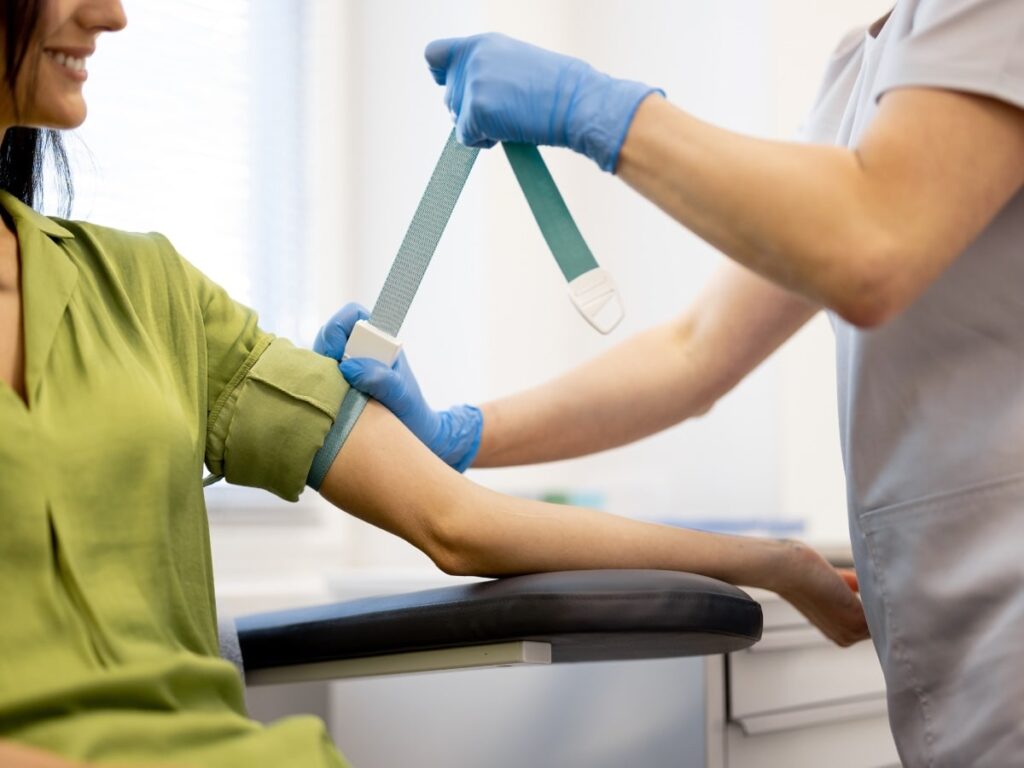
Blood Tests
Blood tests can reveal abnormalities in liver function and may include checking for tumour markers like alpha-fetoprotein (AFP).

Imaging Tests
Doctors may recommend imaging tests such as ultrasound, CT scans, and MRIs to visualise the liver and detect abnormalities.

Liver Biopsy
A liver biopsy involves removing a small sample of liver tissue for laboratory testing to diagnose cancer cells. This procedure helps in confirming the presence of cancer but carries some risks like bleeding and infection.

Liver Screening
Liver screening involves a Liver Function Test (LFT) to measure enzymes (ALT, AST, ALP, GGT) and proteins (albumin, bilirubin), paired with an ultrasound to detect damage or disease. Your liver cancer doctor or specialist will recommend that high-risk individuals in Singapore, such as those with Hepatitis B or liver cirrhosis, to go for consistent screening every 6 months to monitor for liver cancer.
Once liver cancer is diagnosed, staging tests are conducted to determine the extent of the cancer. Staging helps understand the cancer’s size, location, and spread, which is crucial for determining treatment options and prognosis.
Liver Cancer Stages
Staging helps your doctor or liver cancer specialist understand the extent of the cancer, such as its size, location, and whether it has spread. This information is essential for making informed decisions about the most appropriate treatment options and discussing the potential outlook.
While the detailed TNM and BCLC classifications can be complex, liver cancer stages are often summarised to help patients understand the general extent of the disease. Below is a general description, though specific staging criteria can vary:
-
Stage I (Early or Localised Liver Cancer):
At this stage, there is typically a single tumour confined to the liver. The tumour has not grown into major blood vessels of the liver. The cancer has not spread to nearby lymph nodes or distant sites. Liver function is generally preserved.
Treatment Pathway: Curative intervention are the primary treatment methods for Stage I Liver Cancer. A liver cancer surgeon in Singapore will typically recommend liver cancer surgery (resection) or a liver transplant as the first line of defence.
For patients who are not suitable for surgery, ablative therapies like Radiofrequency Ablation (RFA) may be used to destroy the tumour locally.
-
Stage II (Intermediate Liver Cancer):
This stage may involve a single tumour that has grown into nearby blood vessels, OR There might be multiple small tumours, all confined within the liver. The cancer has not spread to nearby lymph nodes or distant sites.
Treatment Pathway: Treatment for Stage II Liver Cancer depends heavily on liver function and tumour location. While surgery or transplantation may still be an option for selected patients, a liver cancer specialist often employs locoregional therapies such as Transarterial Chemoembolization (TACE) to block blood supply to the tumours or ablation if the nodules are accessible.
-
Stage III (Advanced Liver Cancer):
This stage often involves a large tumour, or multiple tumours, where at least one has grown into a major branch of one of the liver's main blood vessels (like the portal vein or hepatic vein). OR The tumour(s) may have invaded nearby organs (other than the gallbladder) or perforated the peritoneum (the lining of the abdomen). The cancer may or may not have spread to nearby lymph nodes, but has not spread to distant sites.
Treatment Pathway: During Stage III Liver Cancer, treatment typically shifts toward systemic therapies (immunotherapy or targeted drugs) or advanced locoregional procedures like Selective Internal Radiation Therapy (SIRT) to control tumour growth and preserve liver function.
-
Stage IV (Very Advanced or Metastatic Liver Cancer):
The cancer has spread beyond the liver to other parts of the body. This includes spread to nearby lymph nodes (regional lymph node metastasis). It also includes spread to distant organs, such as the lungs, bones, or brain (distant metastasis).
Treatment Pathway: At Stage IV Liver Cancer, the focus is on managing symptoms, preserving quality of life, and slowing disease progression. Your liver cancer doctor in Singapore will likely prescribe systemic treatments, such as immunotherapy or chemotherapy, and may recommend palliative radiotherapy to alleviate pain from metastases.
Get an Accurate Diagnosis & Specialised Treatment For Liver Cancer
Consult our dual fellowship-trained liver cancer surgeon for an accurate diagnosis and discuss a suitable treatment plan in Singapore today.
Surgical Treatment Options
These surgical treatments offer the best chances of curing liver cancer, particularly when the cancer is localised and has not spread extensively. A liver cancer surgeon will evaluate the tumour’s position and determine the most effective plan for surgery.
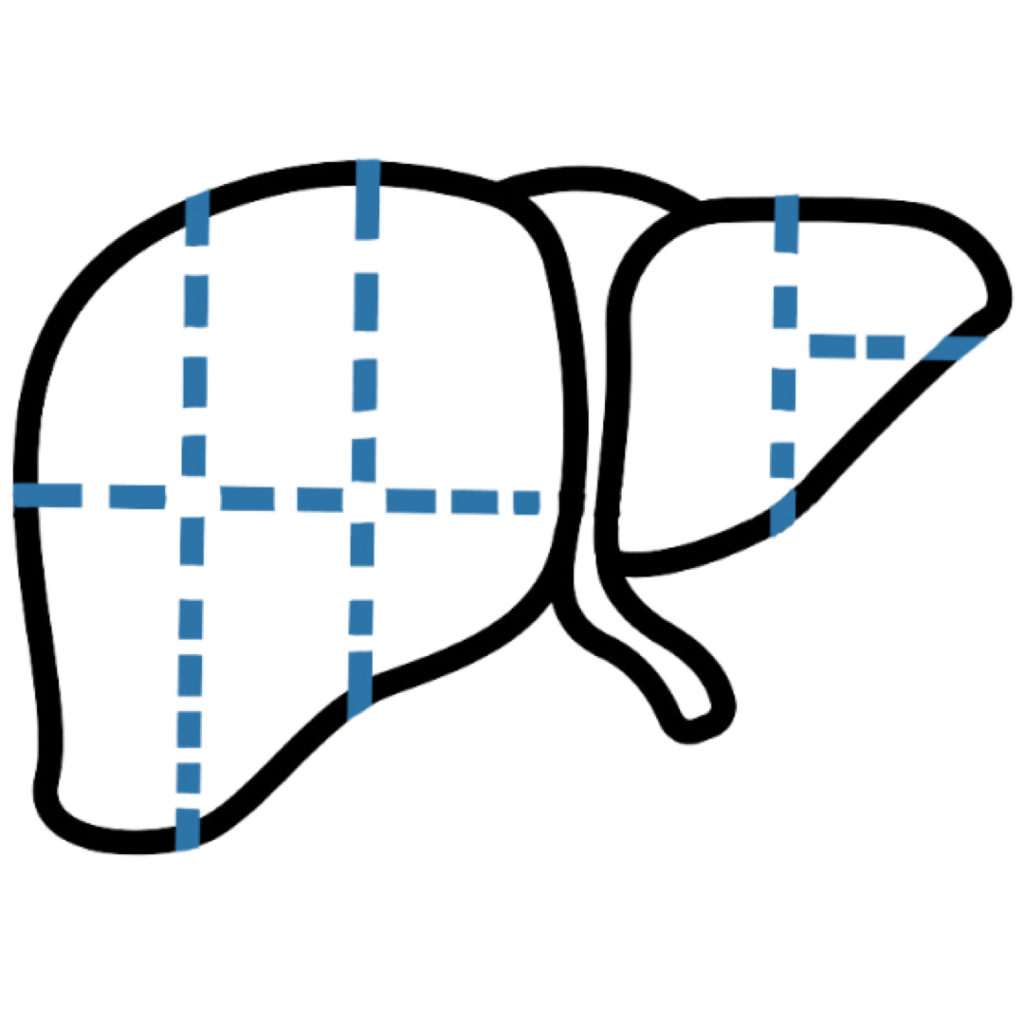
Liver Resection
A liver resection (partial hepatectomy) involves removing part of the liver affected by cancer. Because the liver is divided into eight segments with its own independent blood supply, a liver cancer surgeon can remove the section with the tumour while leaving the rest of the liver intact. Liver resection is a viable option when the cancer is confined to the liver, and the remaining liver is healthy.
Common types of liver resection include:
- Anatomical Segmentectomy: Instead of removing a whole lobe, the surgeon removes only the specific segment(s) where the tumour resides along with its feeding blood vessels. This "root-based" removal helps prevent recurrence while preserving the maximum amount of healthy liver tissues.
- Central Hepatectomy: Removes the central segments of the liver while keeping the healthy left and right outer lobes intact. This is chosen for centrally located tumours to avoid sacrificing a large volume of healthy liver, which would happen if a full right or left hepatectomy were performed.
- Major Hepatectomy (Right or Left): Removal of the entire right or left lobe. This is typically necessary when a large tumour occupies the majority of one side of the liver or invades major blood vessels on that side.
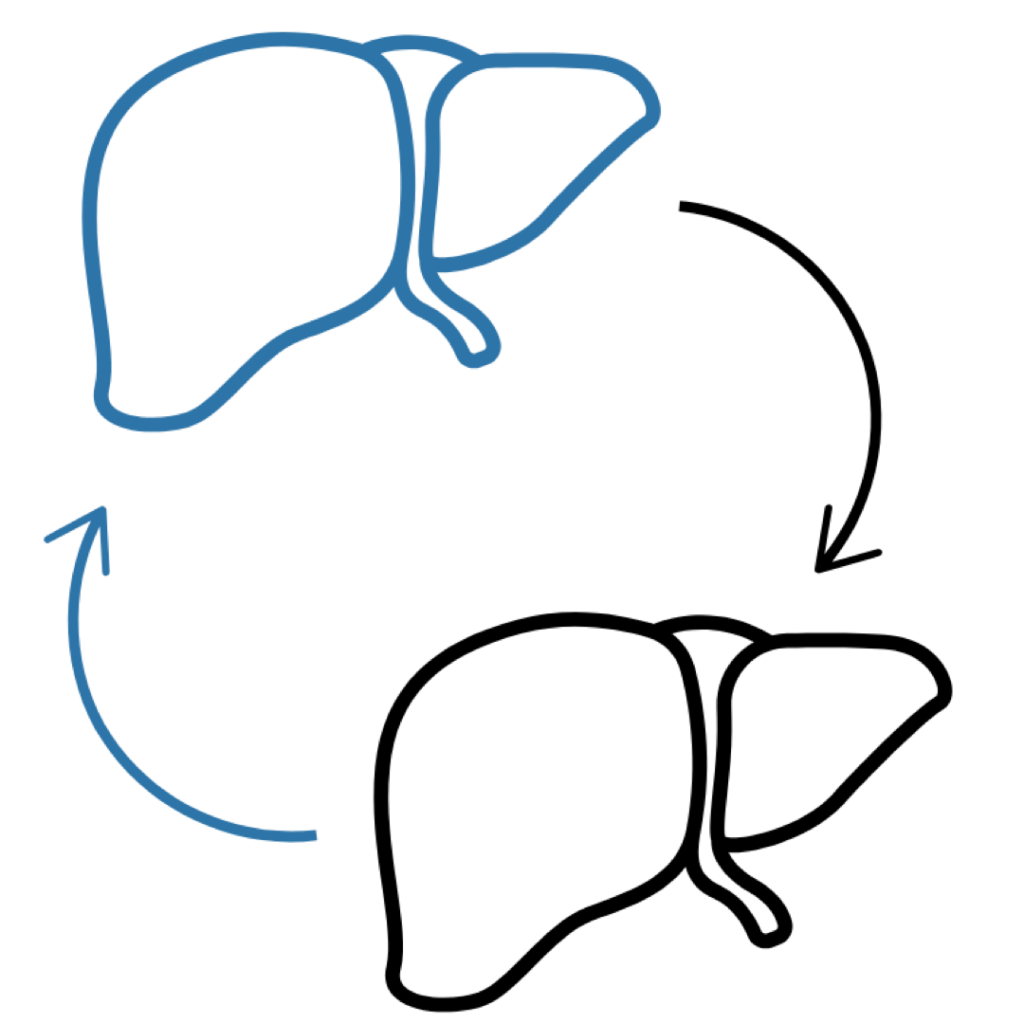
Liver Transplant
For patients with cirrhosis or specific tumour characteristics, a liver transplant may be recommended. This procedure involves replacing the diseased liver with a healthy liver from a donor. It is often the preferred option when a liver cancer specialist deems the liver too scarred to function properly after a resection.

Laparoscopic Liver Surgery
A form of keyhole surgery, this is a minimally invasive procedure where the liver cancer surgeon removes liver tumours through small incisions. It is an option for patients with tumours in accessible segments of the liver. The process reportedly reduces pain and improves recovery, but its suitability depends on the tumour’s size and location, as assessed by the surgeon.

Open Liver Surgery
A liver cancer surgeon in Singapore may recommend open surgery if the tumour is very large, located deep within the liver, or situated close to critical major blood vessels. The larger incision provides the surgeon with direct access and maximum control so the entire tumour is removed with clear margins.
Liver Cancer Surgery Prognosis
A diagnosis of liver cancer can be overwhelming, but it is important to know that significant advancements in medical technology have made the condition increasingly treatable, especially when caught early.
Median Survival Rates of Liver Cancer by Stage
The outlook for liver cancer varies greatly depending on the stage at which it is detected. According to a local study, patients with early-stage liver cancer had a median survival of 18.6 months, compared to 3.8 months for those diagnosed at a late stage.
GBB Goh et al. Deciphering the epidemiology of hepatocellular carcinoma through the passage of time: A study of 1,401 patients across 3 decades. Hepatology Communications 2017;1:564–571
Liver Cancer Screening and Early Detection
Because early-stage cancer often presents no symptoms, proactive screening is life-saving. A liver cancer doctor in Singapore will strongly advise high-risk groups (such as Hepatitis B carriers or those with liver cirrhosis) to undergo consistent screening every six months. Detecting the disease before symptoms arise allows for curative treatments like liver cancer surgery, which can drastically improve life expectancy.
Surgery as a Preferred Treatment for Liver Cancer
When feasible, surgical intervention is the preferred treatment for liver cancer. The outcomes are generally favourable, though they depend on the health of the remaining liver tissue:
- Resection Limits: The liver has a remarkable capacity for function. In patients with a healthy liver, up to 70% of the organ can be safely removed, provided the remaining portion is sufficient to maintain normal bodily functions. However, for patients with cirrhosis or fatty liver disease, a liver cancer surgeon will exercise greater caution and remove a smaller portion to prevent liver failure.
- Regenerative Capability: The liver is the only organ in the body capable of true regeneration. After a resection, the remaining healthy liver tissue begins to grow back. Within weeks to months, it can regenerate to near its original volume to compensate for the removed tissue.
- Long-term Outlook: Prognosis is strongest when the tumour is removed surgically. For patients with early-stage hepatocellular carcinoma (HCC) who undergo curative liver resection, 5-year survival rates can exceed 60% according to a local study.
Non-Surgical Treatment Options
Non-surgical treatments are available for patients who may not be eligible for surgery.
-
Transarterial Chemoembolization (TACE)
TACE delivers high doses of chemotherapy directly to the liver tumour while blocking off its blood supply, effectively targeting the cancer cells.
-
Transarterial Radioembolisation (TARE)
TARE is a minimally invasive procedure that involves injecting tiny radioactive beads into the blood vessels that feed the liver tumour.
-
Radiofrequency Ablation (RFA) and Microwave Ablation (MWA)
These techniques use heat to destroy liver tumours by inserting probes directly into the tumour to induce coagulation necrosis.
-
Percutaneous Ethanol Injection (PEI)
PEI involves injecting highly concentrated alcohol directly into the tumour to destroy cancer cells.
-
Targeted Cancer Drugs
Medications may be prescribed to target specific molecules involved in cancer growth, helping shrink tumours or slow their progression.
-
Radiotherapy
Radiotherapy uses high-energy radiation beams to target and destroy cancer cells in the liver.
-
Immunotherapy
This treatment stimulates the body's own immune system to identify and fight liver cancer cells. It has become a significant option, particularly for advanced cancer, sometimes combined with targeted therapies.
-
Immunotherapy
Uses anti-cancer drugs, usually given intravenously, to reach cells throughout the body. While its role in primary liver cancer can be limited, it might be used in specific advanced cases or for secondary liver cancers.
-
Stereotactic Body Radiation Therapy (SBRT)
It delivers high-dose radiation beams to the tumour, offering an alternative when surgery or ablation isn't feasible. The process aims to minimise damage to surrounding liver tissue.

Dr Thng Yongxian
Senior Consultant
HEPATOPANCREATOBILIARY & GENERAL SURGEON
MBBS (SG) • MMed (Surg) • MRCS (Ire) • FRCSEd (Gen) • FAMS (Surg)
Dr Thng Yongxian is a dual fellowship-trained Hepatopancreatobiliary & General Surgeon who has performed over 6000 surgical procedures.
- Bachelor of Medicine & Bachelor of Surgery
- National University of Singapore
- Membership of the Royal College of Surgeons, Ireland
- Master of Medicine, General Surgery, Singapore
- Fellow of the Royal College of Surgeons, Edinburgh
- Fellow of the Academy of Medicine, Singapore
He pursued his subspecialty training in Hepatopancreatobiliary surgery first in the Department of Hepatopancreatobiliary Surgery, Singapore General Hospital. Following this, he completed a clinical fellowship in Minimally Invasive Hepatopancreatobiliary Surgery at Seoul National University Hospital in Bundang, South Korea — a high volume centre in minimally invasive complex liver and pancreas surgery.
Dr Thng set up and pioneered the Minimally invasive surgery program for his hospital in complex liver and pancreas cases. His surgeries were featured on live national television. His surgical videos have also been presented at international surgical conferences. He also pioneered the use of capsule colonoscopy for colorectal screening.
Dr Thng has served on various committees at hospital, cluster and ministry level. Dr Thng served as a member of the Ministry of Health (MOH) Laparoscopic cholecystectomy Clinician workgroup for value-driven care (VDC).
Prevention Strategies
You can significantly reduce your chances of developing liver cancer by following these prevention strategies and addressing associated risk factors.

Maintain a Healthy Weight
Avoiding obesity can help protect against liver cancer, as obesity is linked to fatty liver disease and diabetes, both of which are risk factors for liver cancer.

Avoid and Treat Hepatitis Infections
Chronic infection with hepatitis B or C viruses significantly increases the risk of liver cancer. Getting vaccinated against hepatitis B and undergoing treatment for chronic hepatitis B or C can reduce the risk of liver cancer.

Limit Alcohol and Tobacco Use
Alcohol abuse is a major cause of cirrhosis, which can lead to liver cancer. Quitting smoking can also slightly lower the risk of liver cancer.
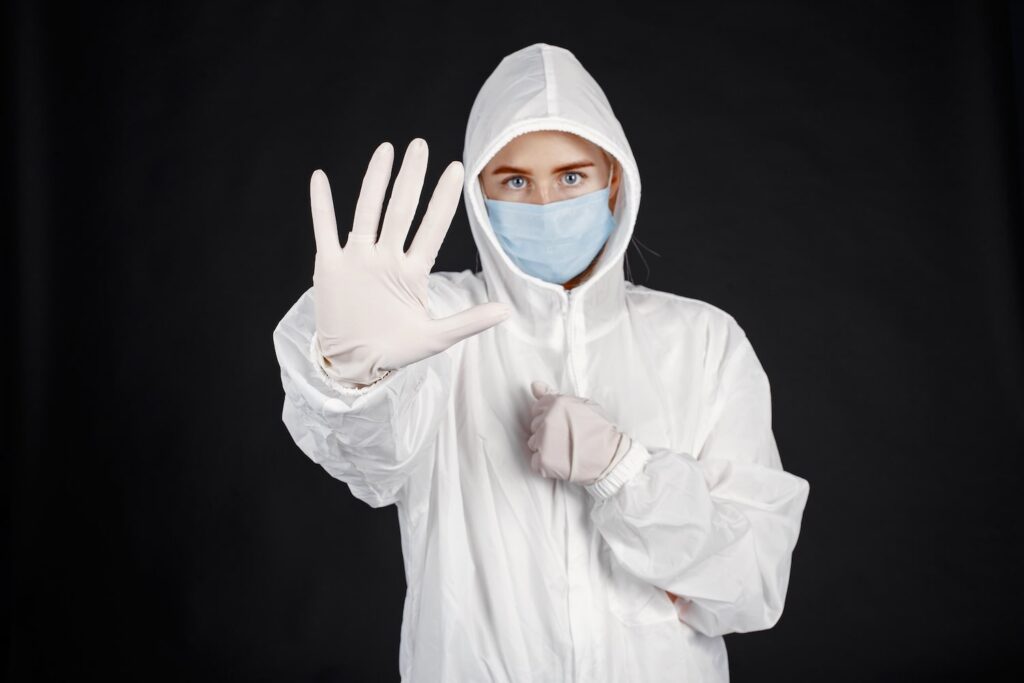
Limit Exposure to Cancer-Causing Chemicals
Avoiding exposure to chemicals known to cause liver cancer, such as aflatoxin, can help reduce the risk.
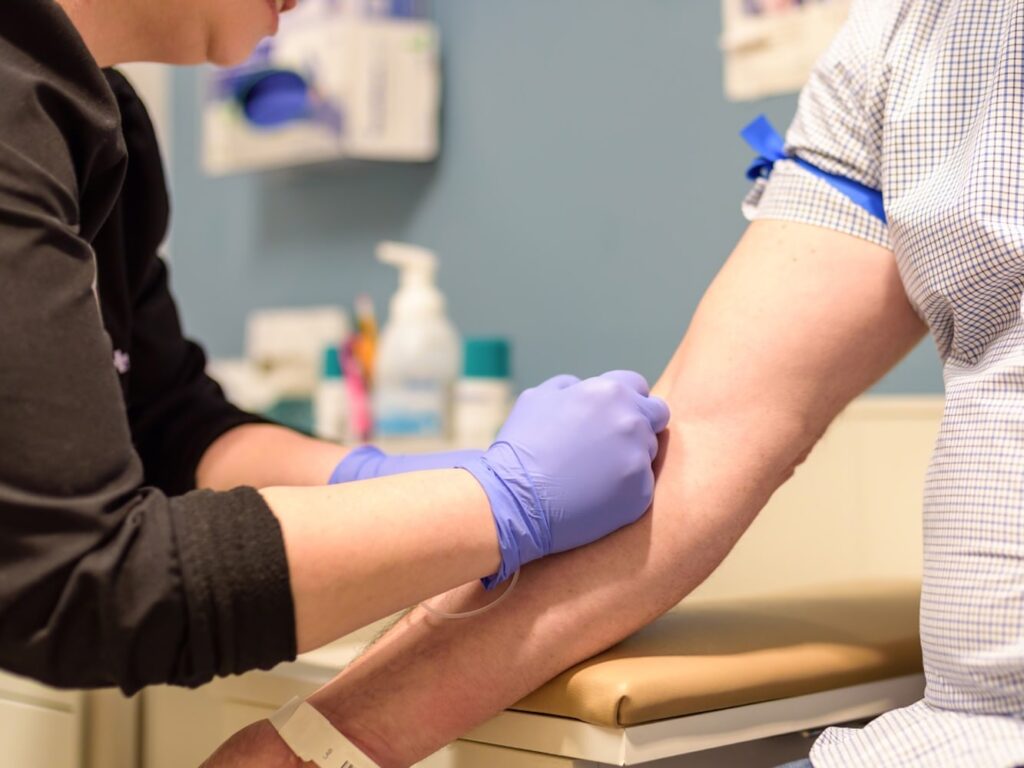
Protect Against Hepatitis B and C Infection
Vaccination against hepatitis B and screening for hepatitis C is crucial in preventing liver cancer. Antiviral therapy for chronic hepatitis B and effective treatments for hepatitis C can reduce the risk of liver cancer.

Other Risk Factors
Conditions like non-alcoholic fatty liver disease (NAFLD), cirrhosis worsened by alcohol use, hemochromatosis, exposure to arsenic, intake of male hormones or anabolic steroids, and ingestion of aflatoxin can also increase the risk of developing liver cancer.
Frequently Asked Questions About Liver Cancer Treatments in Singapore
Can liver cancer be cured?
Who is most at risk of developing liver cancer?
The risk of developing liver cancer is higher in individuals with certain pre-existing conditions. Key risk factors include chronic infection with Hepatitis B or C, liver cirrhosis (scarring) resulting from any cause (including alcohol abuse, Non-Alcoholic Fatty Liver Disease – NAFLD), diabetes, and certain inherited liver diseases.
Consulting a doctor in Singapore for screening is advisable if you fall into these risk groups.
If my relatives have liver cancer, do I have higher risk?
While most cases of liver cancer are not directly inherited like some other cancers, having a close family member (parent or sibling) with the disease can potentially increase your risk. This may be due to shared genetic factors (like inherited liver diseases) or shared environmental factors (such as the transmission of Hepatitis B within a family).
It is important to discuss your family medical history with your doctor or specialist to understand your individual risk profile.
Am I eligible for liver surgery or a liver transplant?
Eligibility for liver surgery (resection) or a liver transplant depends on a careful evaluation by a liver cancer surgeon. Factors considered include the stage of the liver cancer (size, number, and location of tumours), whether it has spread to blood vessels or outside the liver, your overall liver function (especially if cirrhosis is present), and your general health.
Specific criteria, like the Milan criteria, often guide liver transplant decisions in Singapore and globally.
What is the survival rate for liver cancer patients?
According to local studies, five-year survival rate for liver cancer patients in Singapore can be over 40%. Survival rates for liver cancer patients vary significantly based on the stage at which the cancer is diagnosed, the type of treatment received, the underlying health of the liver, and the patient’s overall fitness.
It is essential to discuss your specific situation and prognosis with your cancer specialist.
How long is the recovery time after liver cancer surgery?
Recovery after liver cancer surgery depends on the type and extent of the operation (e.g., open resection vs. laparoscopic surgery, or a transplant) and the individual patient. Hospital stays typically range from 5 to 7 days for open surgery and may be shorter (3-4 days) for laparoscopic procedures.
Full recovery, allowing a return to normal activities, can take several weeks to a few months. Your surgeon will provide detailed post-operative care instructions.
When should I consider liver cancer surgery?
Liver cancer surgery is often the primary treatment consideration when liver cancer is diagnosed at an early stage, meaning the tumour(s) can be completely removed while leaving enough healthy liver tissue to function adequately, or when a liver transplant is a feasible option. It is typically considered the treatment with the highest potential for a cure. The decision should be made in consultation with an experienced liver cancer surgeon or cancer specialist after a thorough assessment.
What is involved in liver cancer screening and how often should I do it?
Liver cancer screening is essential for patients with risk factors like liver hardening (cirrhosis) or chronic viral hepatitis and consists of an ultrasound and AFP blood analysis performed every six months. Regular monitoring at this specific interval gives a liver cancer specialist the best opportunity to catch abnormalities early, often preventing the need for more complex interventions later.
Related Liver Treatments

Liver Cirrhosis
Liver cirrhosis requires management focused on its underlying cause and complications. Treatment involves stopping alcohol intake, managing viral hepatitis (B or C), maintaining a healthy diet, and addressing issues like fluid retention or bleeding.

Liver Cysts
Liver cysts are typically benign, fluid-filled sacs. If the cysts become large, cause pain, or show uncertain features, a specialist might recommend intervention. Options may include aspiration (drainage) or laparoscopic cyst deroofing (a type of surgery) to remove the cyst wall.

Hepatitis B & C
Hepatitis B and C are viral infections that can lead to chronic liver disease, cirrhosis, and liver cancer. While Hepatitis C can often be cured, Hepatitis B treatment will focus on controlling the virus.

Jaundice
Jaundice (yellowing skin/eyes) is a symptom of an underlying issue, not a disease itself. After a diagnosis, treatment can involve managing liver inflammation (like hepatitis), removing gallstones, or addressing bile duct blockages.
Corporate & Personal Insurance Plans
Clinic Locations
Nexus Surgical @ Mt. Alvernia
- 820 Thomson Road #06-05, Singapore 574623
- (65) 9838 5827
- (65) 9838 5827
-
Mondays to Fridays: 9.00am - 5.00pm
(Lunch: 1:00pm - 2:00pm)
Saturdays: 9.00am - 1.00pm
Sundays & PH: Closed
Nexus Surgical @ Mt. Elizabeth Orchard
- 3 Mount Elizabeth, #08-06, Singapore 228510
- (65) 9838 5827
- (65) 9838 5827
-
Mondays to Fridays: 9.00am - 5.00pm
(Lunch: 1:00pm - 2:00pm)
Saturdays: 9.00am - 1.00pm
Sundays & PH: Closed
Nexus Surgical @ Mt. Elizabeth Novena
- 38 Irrawaddy Road, #08-43, Singapore 329563
- (65) 9838 5827
- (65) 9838 5827
-
Mondays to Fridays: 9.00am - 5.00pm
(Lunch: 1:00pm - 2:00pm)
Saturdays: 9.00am - 1.00pm
Sundays & PH: Closed
Nexus Surgical @ Parkway East
- 319 Joo Chiat Place, #05-01, Singapore 427989
- (65) 9838 5827
- (65) 9838 5827
-
Mondays to Fridays: 9.00am - 5.00pm
(Lunch: 1:00pm - 2:00pm)
Saturday, Sunday & PH: Closed
Nexus Surgical @ Gleneagles Medical Centre
- 6 Napier Road, #05-10, Singapore 258499
- (65) 9838 5827
- (65) 9838 5827
-
Mondays to Fridays: 9.00am - 5.00pm
(Lunch: 1:00pm - 2:00pm)
Saturdays: 9.00am - 1.00pm
Sundays & PH: Closed
Nexus Surgical @ Mt. Alvernia
- 820 Thomson Road #06-05, Singapore 574623
- yongxian.thng@nexussurgical.sg
- (65) 9838 5827
- (65) 9838 5827
-
Mondays to Fridays: 9.00am - 5.00pm
(Lunch: 1:00pm - 2:00pm)
Saturdays: 9.00am - 1.00pm
Sundays & PH: Closed
Nexus Surgical @ Mt. Elizabeth Orchard
- 3 Mount Elizabeth, #08-06, Singapore 228510
- yongxian.thng@nexussurgical.sg
- (65) 9838 5827
- (65) 9838 5827
-
Mondays to Fridays: 9.00am - 5.00pm
(Lunch: 1:00pm - 2:00pm)
Saturdays: 9.00am - 1.00pm
Sundays & PH: Closed
Nexus Surgical @ Mt. Elizabeth Novena
- 38 Irrawaddy Road, #08-43, Singapore 329563
- yongxian.thng@nexussurgical.sg
- (65) 9838 5827
- (65) 9838 5827
-
Mondays to Fridays: 9.00am - 5.00pm
(Lunch: 1:00pm - 2:00pm)
Saturdays: 9.00am - 1.00pm
Sundays & PH: Closed
Nexus Surgical @ Parkway East
- 319 Joo Chiat Place, #05-01, Singapore 427989
- yongxian.thng@nexussurgical.sg
- (65) 9838 5827
- (65) 9838 5827
-
Mondays to Fridays: 9.00am - 5.00pm
(Lunch: 1:00pm - 2:00pm)
Saturday, Sunday & PH: Closed
Nexus Surgical @ Gleneagles Medical Centre
- 6 Napier Road, #05-10, Singapore 258499
- yongxian.thng@nexussurgical.sg
- (65) 9838 5827
- (65) 9838 5827
-
Mondays to Fridays: 9.00am - 5.00pm
(Lunch: 1:00pm - 2:00pm)
Saturdays: 9.00am - 1.00pm
Sundays & PH: Closed
Nexus Surgical @ Mt. Alvernia
- 820 Thomson Road #06-05, Singapore 574623
- yongxian.thng@nexussurgical.sg
- (65) 9838 5827
- (65) 9838 5827
-
Mondays to Fridays: 9.00am - 5.00pm
(Lunch: 1:00pm - 2:00pm)
Saturdays: 9.00am - 1.00pm
Sundays & PH: Closed
Nexus Surgical @ Mt. Elizabeth Orchard
- 3 Mount Elizabeth, #08-06, Singapore 228510
- yongxian.thng@nexussurgical.sg
- (65) 9838 5827
- (65) 9838 5827
-
Mondays to Fridays: 9.00am - 5.00pm
(Lunch: 1:00pm - 2:00pm)
Saturdays: 9.00am - 1.00pm
Sundays & PH: Closed
Nexus Surgical @ Mt. Elizabeth Novena
- 38 Irrawaddy Road, #08-43, Singapore 329563
- yongxian.thng@nexussurgical.sg
- (65) 9838 5827
- (65) 9838 5827
-
Mondays to Fridays: 9.00am - 5.00pm
(Lunch: 1:00pm - 2:00pm)
Saturdays: 9.00am - 1.00pm
Sundays & PH: Closed
Nexus Surgical @ Parkway East
- 319 Joo Chiat Place, #05-01, Singapore 427989
- yongxian.thng@nexussurgical.sg
- (65) 9838 5827
- (65) 9838 5827
-
Mondays to Fridays: 9.00am - 5.00pm
(Lunch: 1:00pm - 2:00pm)
Saturday, Sunday & PH: Closed
Nexus Surgical @ Gleneagles Medical Centre
- 6 Napier Road, #05-10, Singapore 258499
- yongxian.thng@nexussurgical.sg
- (65) 9838 5827
- (65) 9838 5827
-
Mondays to Fridays: 9.00am - 5.00pm
(Lunch: 1:00pm - 2:00pm)
Saturdays: 9.00am - 1.00pm
Sundays & PH: Closed
Need help navigating your health?
If you’re experiencing symptoms or want to understand your treatment options, contact us today.